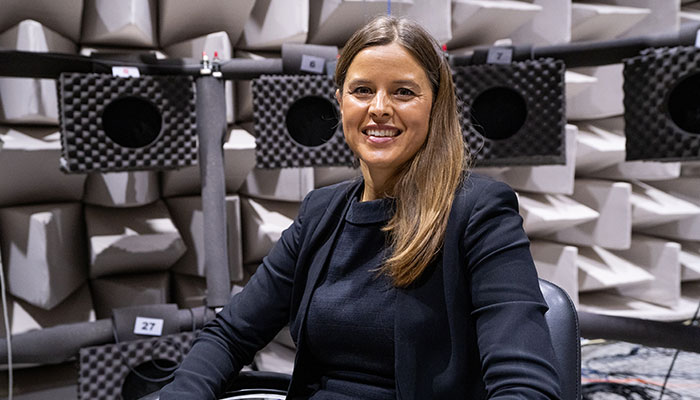Disabling hearing loss currently affects 466 million people globally, including 34 million children, according to the World Health Organisation. That’s five per cent of the world’s population. One third of people over the age of 65 have hearing loss and nearly half of those are over 75 years-old.

Hearing help: options ranging from getting a hearing aid, a cochlear implant or even learning sign language can enormously improve the lives of people with hearing loss.
“Hearing loss is a major health problem and needs to be addressed - it’s not just a sign of old age that can be ignored,” says Professor Catherine McMahon. “It needs to be up there with obesity and diabetes and other major health issues.”
Recognising symptoms of hearing loss is the first step to tackle the issue and surprisingly, some symptoms are behavioural.
Depression and anxiety warning
“Hearing loss leads to reduced communication and social connection,” she says.
“People may become withdrawn. They don’t want to go to social events at a restaurant or a cafe because it is hard to hear with all the background noise. They have less engagement with people and may even avoid office conversations around the water cooler.”
If undiagnosed, this can lead to depression and anxiety and even more falls, she says.
A hearing test is the first step to taking positive action to improve quality of life and hearing, says McMahon, with the options ranging from getting hearing aid, cochlear implant or even learning sign language.
Older adults with hearing loss are also sometimes misdiagnosed with dementia. “
Finding answers in the Blue Mountains
Much of the evidence about symptoms from hearing loss in older adults in Australia comes from the Blue Mountains Hearing Study which included Macquarie University as a key partner, McMahon says. It was one of the largest longitudinal studies of hearing loss ever conducted over 15 years with about 3,000 participants of older adults over the age of 55.

Before you know it: hearing loss in older people is often gradual and they don’t recognise it for a while, says Macquarie University Director of Audiology Professor Catherine McMahon.
“Other symptoms include always turning up the volume of the TV or radio or feeling grumpy because they believe people are mumbling or not speaking clearly and they have missed a joke,” she says.
Older adults with hearing loss are also sometimes misdiagnosed with dementia. “They may be struggling so hard to hear something that in the end they don’t remember what was said and then people think they are forgetting, when in fact they just have hearing loss.”
At the same time, children who have hearing loss often have behavioural issues in the classroom.
Hearing loss misdiagnosed as autism in children
“Because they can’t hear what the teacher is saying accurately, they may act up; be badly behaved or distract other children,” McMahon says. “Hearing loss can also masquerade as autism in kids so it is really important to differentiate the diagnosis.”

Headaches: the effort of listening for people with undiagnosed hearing loss can lead to fatigue.
- Mysteries of dyslexia unravelled
- Aged care reforms stumble as older Australians struggle to stay at home
Other symptoms include fatigue and headaches because after the effort of listening, people feel tired. Similarly, they may have hyper-sensitivity to sound or also develop tinnitus - ringing in the ears.
“Also sometimes people experience an imbalance in their ears but most often hearing loss in older people is gradual and they don’t recognise it for a while,” she says.
Sensorineural hearing loss is the most common condition in older people when there is damage to the hair cells in the cochlear or nerve damage. Conductive hearing loss happens with damage or a blockage in the outer and/or middle ear.



